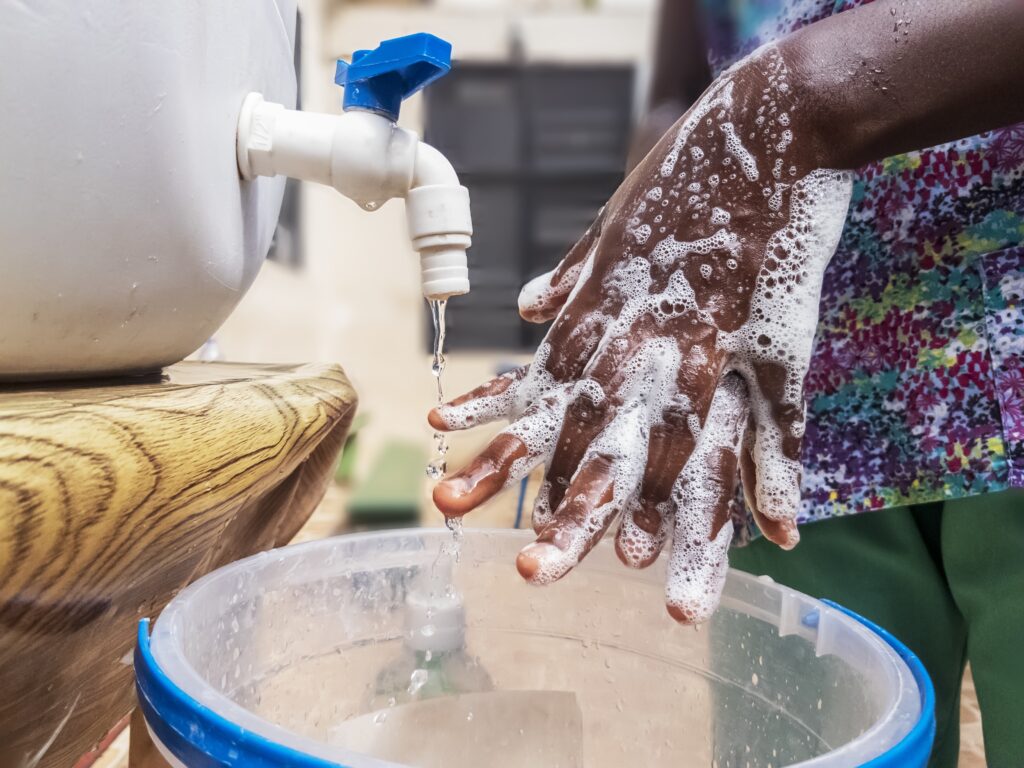
The Nigerian Center for Disease Control (NCDC) has recently drawn attention to the outbreak of cholera in some parts of Nigeria. The NCDC reports that the infection has spread to 30 out of the 36 states in Nigeria and has resulted in a death toll of about 30.
The first case of cholera in Nigeria was reported in 1970 and there have been intermittent outbreaks since then.
Cholera is a highly contagious infection caused by the bacterium Vibrio cholerae and is transmitted via contaminated food and water.
What are the symptoms of cholera?
- Watery Diarrhea: Cholera is often characterized by profuse, watery diarrhea, sometimes described as “rice-water stools” due to its pale, milky appearance.
- Dehydration: Rapid fluid loss can lead to severe dehydration within hours. Look for signs such as dry mouth, extreme thirst, decreased urine output, and sunken eyes.
- Vomiting: Persistent vomiting often accompanies the diarrhea, worsening the dehydration.
- Muscle Cramps: These can occur as a result of the significant electrolyte loss from the body.
- Rapid Heart Rate: This is also a byproduct of dehydration. Dehydration can lead to an increased heart rate.
- Low Blood Pressure: Another consequence of fluid loss is a drop in blood pressure.
- Shock: In severe cases, untreated cholera can lead to hypovolemic shock. Hypovolemic shock is a life-threatening condition that occurs when the body loses so much fluid or blood that the heart is unable to pump blood throughout the body.
How can you prevent cholera?
As dangerous as this infection sounds, cholera is preventable. Now isn’t the time to panic, but it’s time to observe certain measures to keep yourself and others safe and healthy:
By following these essential tips, you can significantly reduce your risk of contracting cholera:
1. Ensure Safe Drinking Water:
- Boil your Water: Always boil water before drinking, or use bottled water if boiling is not possible.
- Use Water Filters: Use water filters that remove bacteria, or treat water with chlorine or iodine tablets.
- Avoid Ice: Avoid ice cubes made from untreated water or water sources you can’t be sure of its hygiene.
2. Practice Good Hygiene
No matter where you are, even if you aren’t at any risk, good hygiene is important both for cholera prevention and good health in general.
- Handwashing: Wash your hands thoroughly with soap and water, especially after using the bathroom and before eating or preparing food.

- Use Hand Sanitizers: When soap and water are not available, use alcohol-based hand sanitizers.
3. Safe Food Practices
- Cook Food Thoroughly: Ensure that all food, especially seafood, is cooked thoroughly and served hot.
- Peel Fruits and Vegetables: Peel fruits and vegetables yourself. Avoid raw vegetables and fruits that cannot be peeled.
- Avoid Street Food: Be cautious with street food, as it may not be prepared under hygienic conditions. You may want to avoid eating out for the time being.
4. Proper Sanitation
- Practice proper waste disposal: Use proper sanitation facilities and ensure you dispose of any waste correctly.
- Clean Surroundings: Maintain clean living environments to prevent contamination.
5. Vaccination
Cholera vaccine is available in Nigeria. If you live in this part of the world or you intend to travel to any high-risk area, consider getting the vaccinated. It provides additional protection and is recommended for travelers and residents in endemic regions.
6. Public Health Measures
- Community Education: Engage in community education programs to raise awareness about cholera prevention. Sharing this article with your friends also counts as community education
- Access to Clean Water: Support and advocate for access to clean water and sanitation facilities in your community.
The clock is ticking, and urgent action is needed to prevent further suffering and loss of life. By following these preventive measures and raising awareness, we can collectively combat the cholera outbreak in Nigeria.
Stay informed and stay safe!
Remember that timely information and proactive steps can make a difference. Let’s protect ourselves and our communities during this challenging time by sharing this information.
Found this article useful? Check out this insightful article on the introduction of the meningitis vaccine in Nigeria.




Leave a Reply